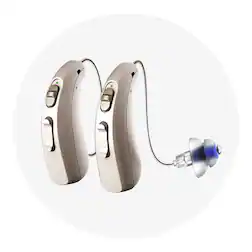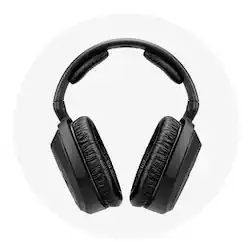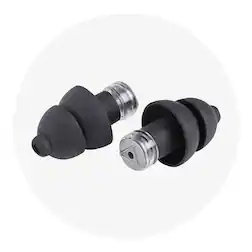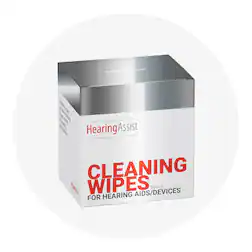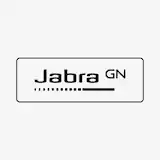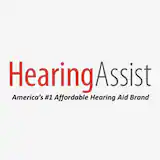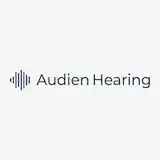Hearing Solutions
Find the right OTC hearing aid fit
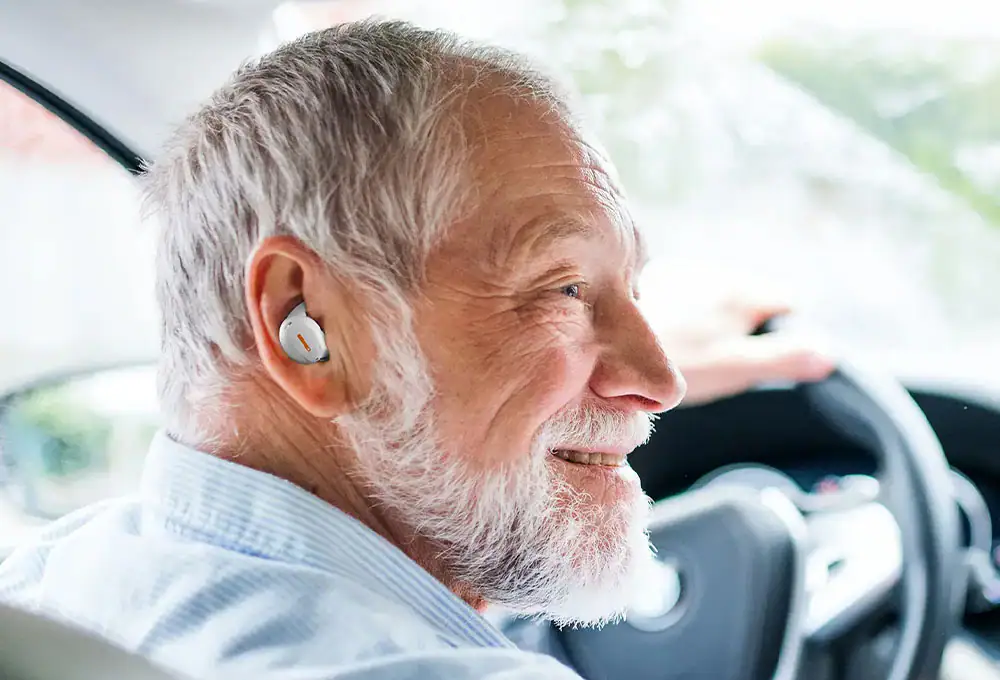
Earbuds
- For mild hearing loss
- Good for situational use
- Intended as a short- to mid-term solution
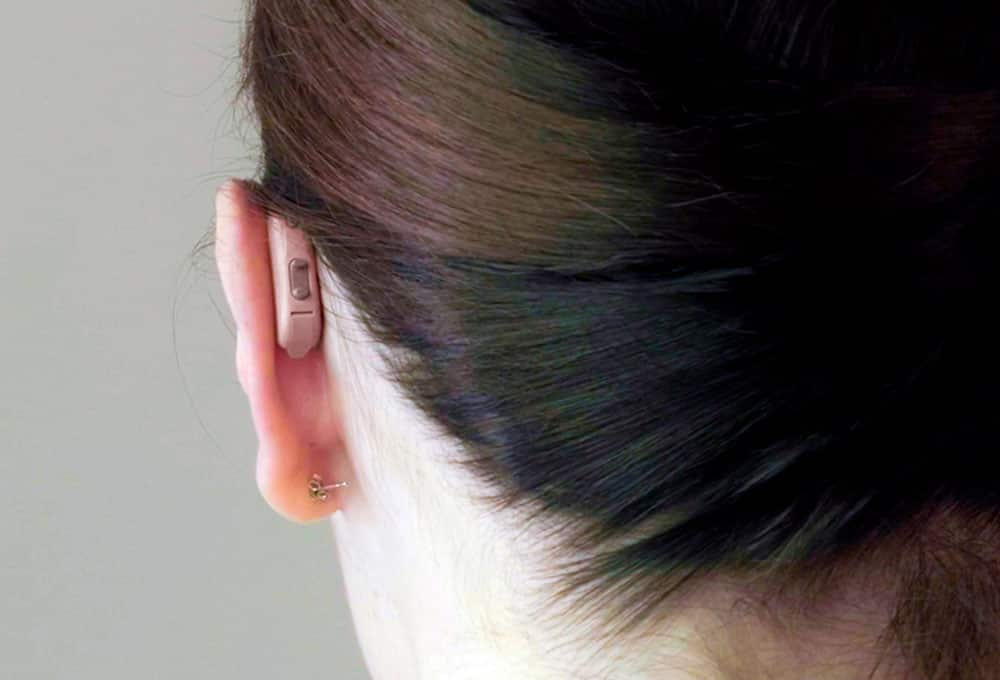
Behind-the-ear hearing aids
- For mild to moderate hearing loss
- The most common fit type
- Easy to use and maintain
- Intended for long-term use
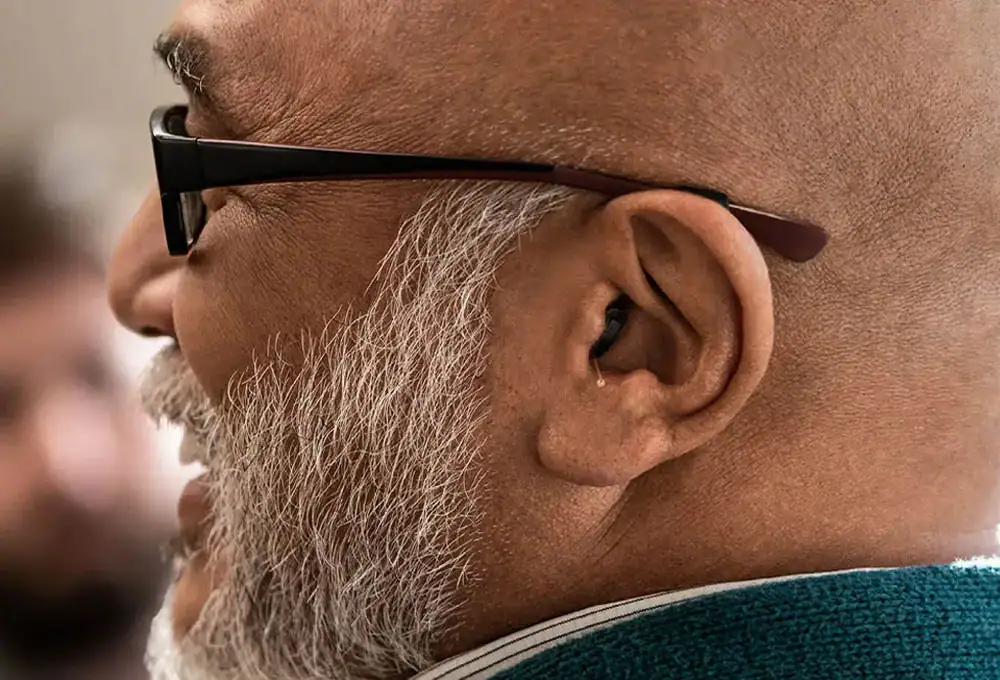
In-the-ear hearing aids
- For mild to moderate hearing loss
- Discreet designs
- Incredible audio fidelity
- Intended for long-term use
Get to know your hearing aids with our extended 60-day return policy
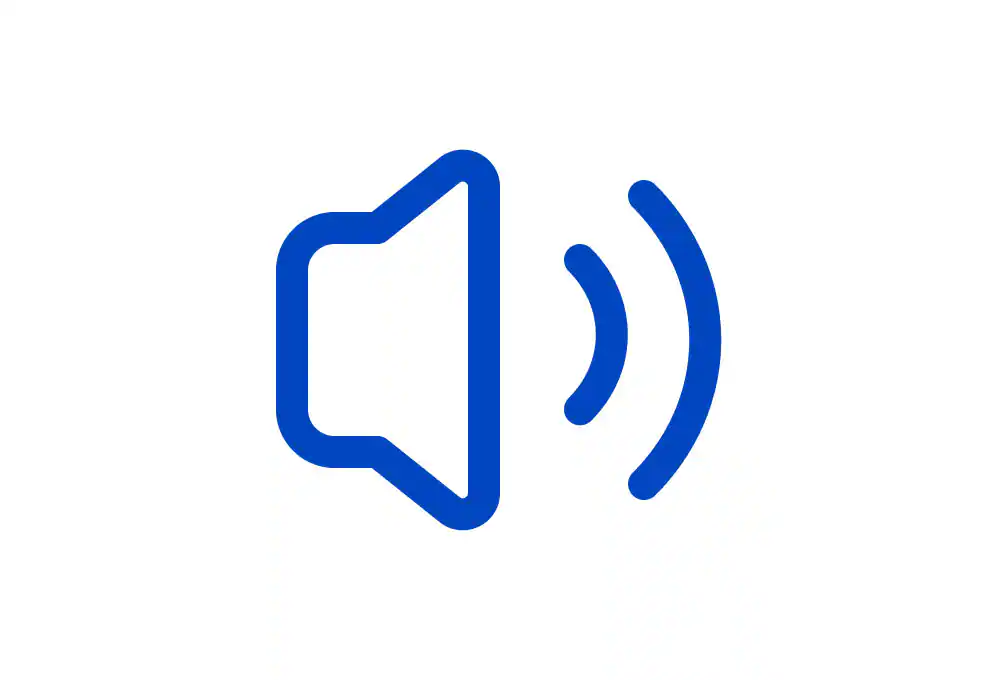
Week 1: PatienceWear your new hearing aids 1–2 hours, twice per day, to start. Gradually increase volume and wear time.
Tip: Itchy ears and your own voice sounding different are normal and will fade over time.
Tip: Itchy ears and your own voice sounding different are normal and will fade over time.
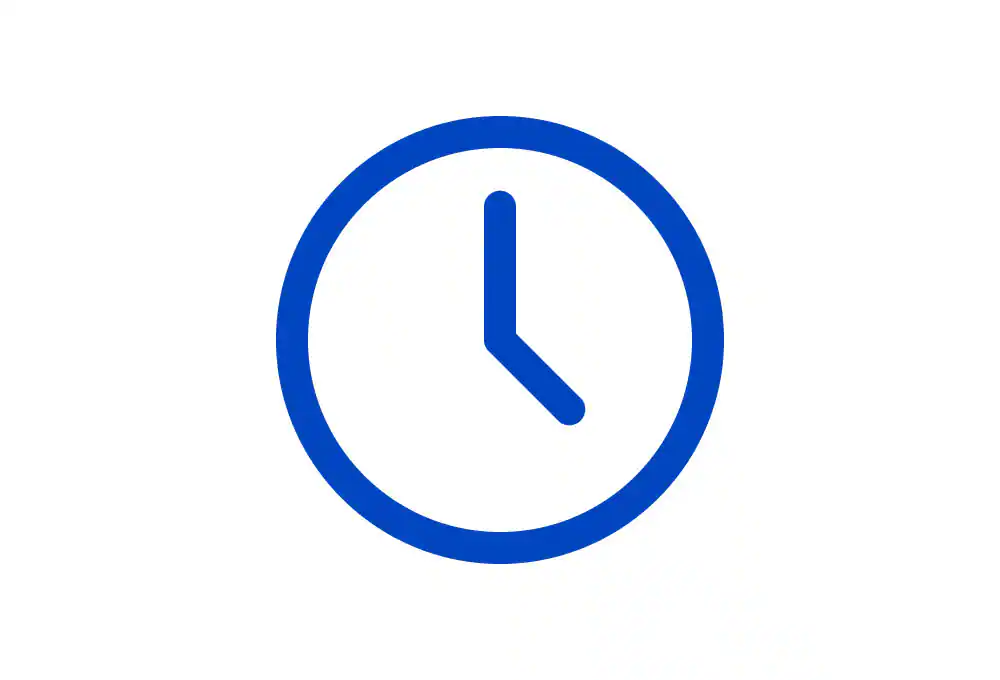
Week 2: PracticeIncrease the amount of time you wear your hearing aids to about 3–4 hours a day.
Tip: Begin wearing your hearing aids in different situations, from quiet to noisy areas, both indoors and outside.
Tip: Begin wearing your hearing aids in different situations, from quiet to noisy areas, both indoors and outside.
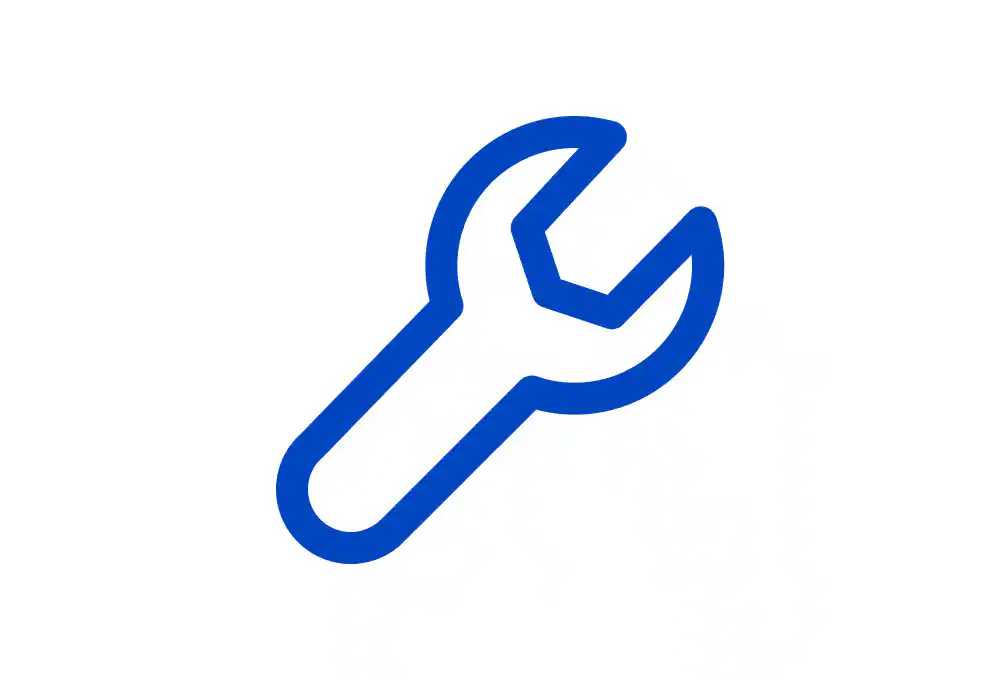
Weeks 3–4: Customize
Start wearing your hearing aids 4–8 hours per day. Fine-tune the settings to find the best sound quality for you.
Tip: Take regular breaks while wearing your hearing aids, even now that you’re getting more comfortable with them.
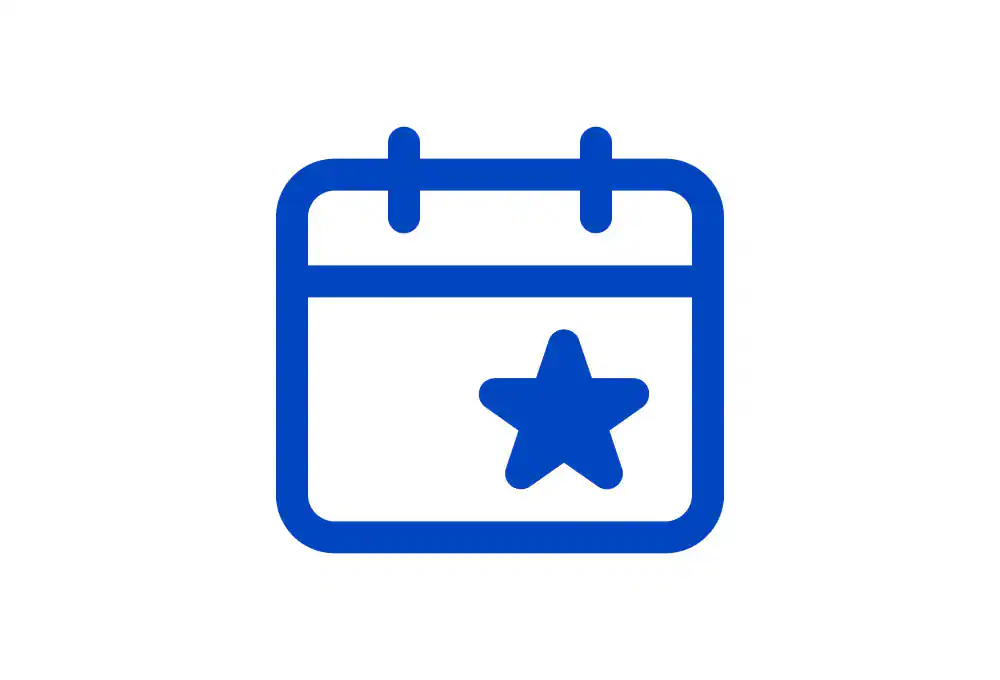
Week 5 and beyond: ReinforceContinue wearing your hearing aids for 8 or more hours per day.
Tips: Clean your hearing aids often. Charge them at night and disconnect Bluetooth while charging to maximize battery life.
Tips: Clean your hearing aids often. Charge them at night and disconnect Bluetooth while charging to maximize battery life.

Types of hearing aids

Hearing aid technology
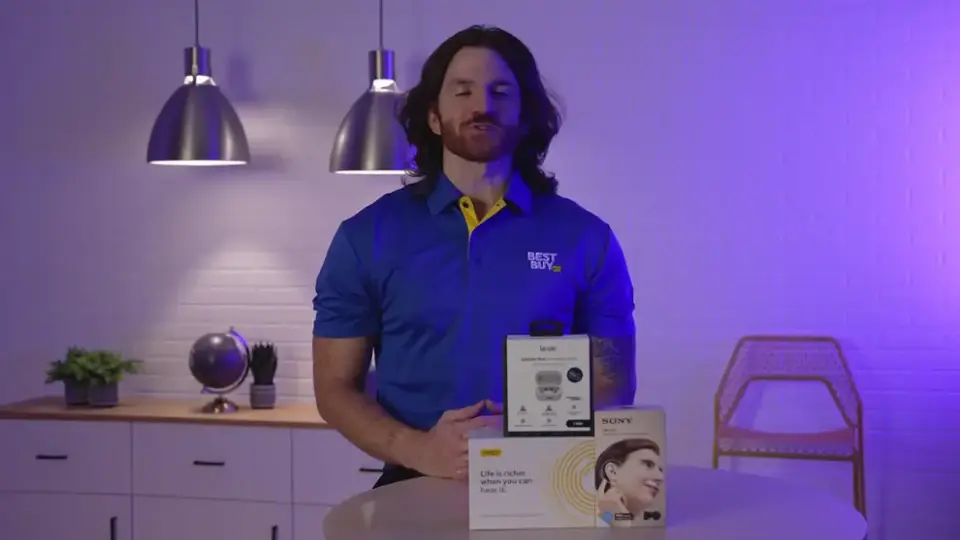
Buying guides for OTC hearing aids
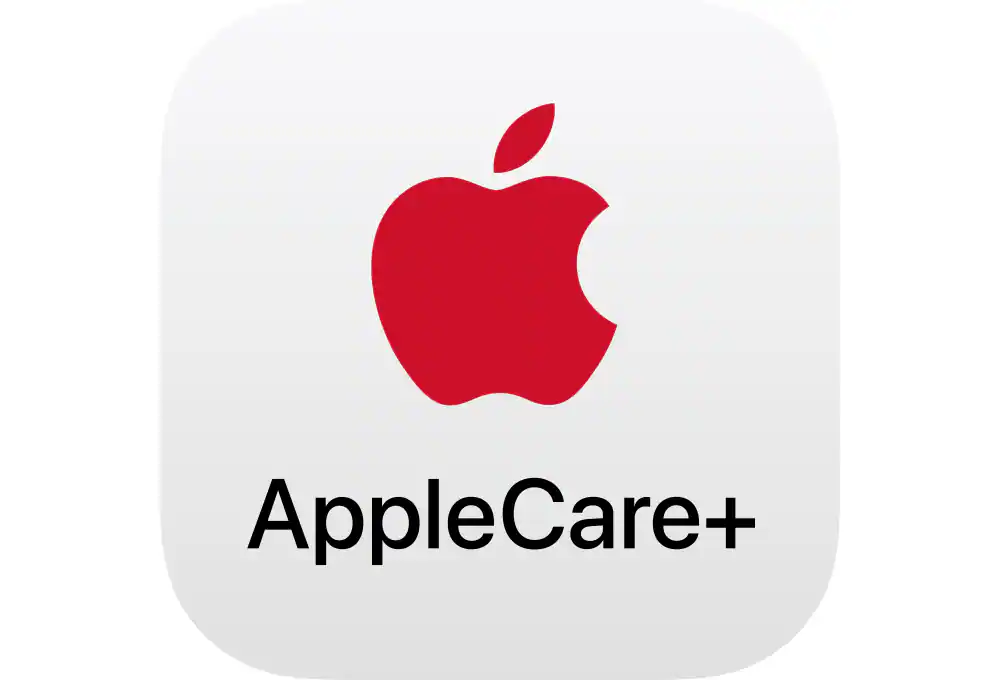
Your Apple product goes everywhere with youShow your new device some love and keep it protected with AppleCare+.
Terms and conditions apply.

Get exclusive deals with a Plus or Total membership
Exclusions, terms and conditions apply.

12 month financingon storewide purchases totaling $299 and up.
Unbeatable priceBacked by our Price Match Guarantee.
Support and services that have your backIncluding setup, installation, protection and repair.
Same-day pickup or fast, free deliveryGet your tech on your terms.
Endless selection, easy to shopFrom the basic essentials to premium tech, it’s easy to find what fits you.
Who needs hearing aids?
Hearing loss can significantly affect your quality of life. For healthy and active aging , it’s important to maintain hearing function. But a lot of people wait to get hearing aids until the effects of hearing loss are severe. Part of that is because, for a long time, hearing aids were bulky and noticeable, and provided unnatural-sounding amplification of environmental noise. Fortunately, hearing aid technology has developed dramatically in recent years, and it’s improving with each new generation of devices. Now hearing aids can be surprisingly low-profile and powerful while looking discreet and sounding natural. Even better, it’s now easier to get hearing aids before you experience severe hearing loss. If you have mild or moderate hearing loss, you can even choose hearing aids on your own without a trip to an audiologist. And you have choices. There are traditional behind-the-ear models as well as barely noticeable in-ear designs. However, if you find out your hearing is more severely impaired, you should talk to a specialist about solution options.
Using your hearing aids with technology.
One of the problems with older generations of hearing aids was that they typically had a hard time handling certain sounds — like a conversation coming through a telephone. But Bluetooth technology now allows hearing aids to pair with compatible devices, such as smartphones, so you can interact seamlessly with those you love in person and remotely. If you’re an older adult, this is something you should take into consideration when finding the best cell phone for you . Many hearing aids are designed to manage features and settings directly from your smartphone, and may give you more control and offer options such as background noise cancellation. For movies, TV shows and games you may even choose a pair of headphones designed to make the experience more immersive. It’s important to stay connected and use technology to your advantage. You can even use technology to keep your brain agile . Don’t forget to clean your hearing aids properly and keep a pair of backup batteries handy. While it is important to always clean hearing aids using the manufacturer’s instructions, there are now hearing aid accessories that make cleaning simple. For functionality and for your ears’ health, it’s crucial to keep your devices clean and dry. Hearing loss can happen at any age, but it is most common for seniors, and dealing with it is one of the important steps toward living independently as you age . So, if you’re frequently asking people to repeat themselves, you might want to take an online hearing assessment and learn more about our hearing solutions.
Additional information:
These statements and any information contained herein are intended for educational purposes only and are not meant to substitute for medical care or to prescribe treatment for any specific health condition. Carefully review product labels for instructions and important safety information, and consider consulting with a health care professional regarding your use of health and wellness products.
